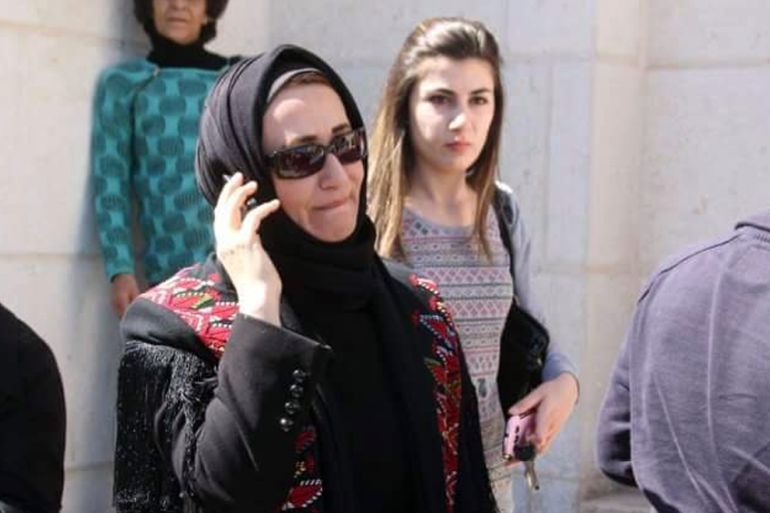More freedom of expression for the Middle East
Values of freedom and human rights must be reflected in the West’s relations with the Middle East.

The strategic partnership that the international community has established with moderate Arab countries in the Middle East makes a lot of sense. But this time around, special effort must be exerted to ensure that this partnership doesn’t slip away.
Human rights issues as well as the limitations on freedom of expression and assembly must not again be compromised in order to benefit Western countries’ geopolitical interests. Friends must be honest with each other, and must not allow the basic values for which this friendship should stand to be compromised for political expediency.
Keep reading
list of 4 itemsAustralian war crimes whistleblower David McBride jailed for six years
Will Israel’s war on Gaza sway South Africa’s election?
Masked Tunisian police arrest prominent lawyer for media comments
More and more moderate Arab countries in the region are taking advantage of the special relationship with the West, to settle political scores and to keep their own people from truly and freely expressing themselves.
As the information revolution moves into an ever deeper and wider cycle, authorities are using the heavy hand of government against their own people – including politicians or journalists – using a variety of laws and measures.
Power to prosecute
The criminalisation of defamation is perhaps the most obvious case in point. The allies of Western countries such as Jordan, Egypt, Tunisia and Palestine are using laws designed to protect the innocent to shut down proper criticism and civil expression.
In Tunisia, Freedom House’s 2015 report stated that “criminal defamation remains one of the biggest obstacles to independent reporting.”
Efforts by human rights activists, civil society organisations, and independent journalists indicate that people will not remain silent. But this is not enough to make serious changes.
In Jordan – one of the closest Western allies – a recent amendment to the cybercrime law allows the government to detain anyone, including registered journalists, on defamation for online publications.
Article 11 of the law, amended in June 2015, allows the Jordanian security officials to detain journalists before presenting their evidence to a court.
While the amended Press and Publication law forbids arresting journalists for their opinions, the same reporters can be prosecuted if the same text that was published in a print publication appears online – according to clause 11 of the cybercrime law.
Three years ago in June 2013, nearly 300 Jordanian news websites were blocked as the government demanded that they apply for a licence – just like print newspapers. To justify and encourage, the government assured website owners that this would protect their journalists from arrest.
Two years later a cybercrime law was passed that opened the door for detention on accusations of online defamation. The new cybercrime law has been used a number of times against journalists and politicians to stifle freedom of expression.
OPINION: Yes, Ahmed Naji is a novelist
In Egypt, novelist Ahmed Naji was sentenced to three years for his latest work. Blasphemy cases are on the rise according to the most recent report by the US Commission on International Religious Freedom (PDF).
In Palestine, an elected member of parliament, Najat Abu Bakr, had to hide in the Legislative Council building in Ramallah for fear of being arrested as she has accused a Palestinian cabinet member of corruption.
The minister denies the charges, and the Abbas administration was adamant to arrest her in accordance with current laws.
Time for action
Criminal defamation is proving to be the easiest tool used by governments to control thought and opinion, but people are not taking things quietly any more. Egyptian writers, intellectuals and artists have launched a campaign to protest against the jail term of Naji.
In Jordan, a public effort was initiated by human rights and media freedom activists under the slogan “talk is not a crime” which consisted of online banners, animations, and radio spots. It has also focused on the need to repeal article 11 of the cybercrime law.
ALSO READ: Palestinian MP resists arrest after anti-graft remarks
In Palestine, public protests to protect Abu Bakr resulted in a compromise that allowed her to return to her home on March 6 – after spending eight days in the Palestinian Legislative Council building.
Efforts by human rights activists, civil society organisations, and independent journalists indicate that people will not remain silent. But this is not enough to make serious changes.
Without support from the international community and especially powerful allies such as the United States, democratic efforts in the Arab world will be crushed by governments with the knowledge that their Western allies need them badly for a number of different reasons.

The people of the Middle East and North Africa are again being pushed into the corner of having to choose between undemocratic or partially democratic secular leaders or violent religious radicalism. People are also regularly asked to choose between stability and freedom.
This is not a fair choice. People should not be limited to seek independence and freedom while also opposing religious extremism – as well as expect both stability and freedom.
Values of freedom and human rights must be reflected in the West’s relations with the Middle East both privately and publicly. The region can’t be allowed to return to the dark days of restrictions on expression. The stakes are too high.
Daoud Kuttab, an award-winning Palestinian journalist, is a former Ferris professor of journalism at Princeton University.
The views expressed in this article are the author’s own and do not necessarily reflect Al Jazeera’s editorial policy.
